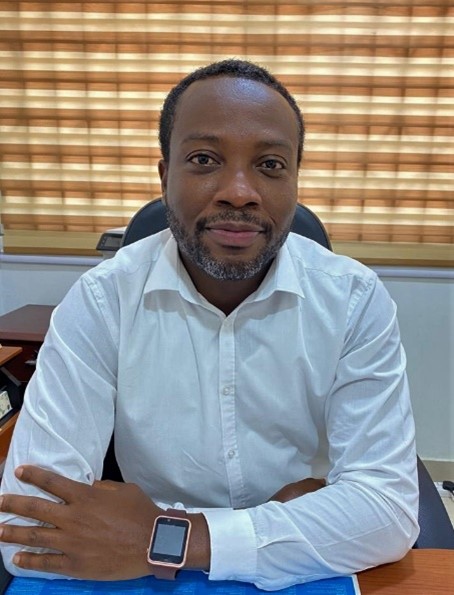Dr. Dennis Laryea is a Senior Specialist in Public Health with the Ghana Health Service (GHS). He has dedicated his career to strengthening public health practices and supporting people living with non-communicable diseases (NCDs). In his current role, he is the technical lead in revising Ghana’s NCD Policy and Strategic Plan (2021-2025).
 In many low- and middle-income countries, limited resources and complex barriers to care place a burden on policymakers, health workers, and most importantly, people. These systemic challenges require collaboration across sectors to solve. Behind these solutions are often passionate advocates who champion the NCD agenda and make the necessary coordination possible.
In many low- and middle-income countries, limited resources and complex barriers to care place a burden on policymakers, health workers, and most importantly, people. These systemic challenges require collaboration across sectors to solve. Behind these solutions are often passionate advocates who champion the NCD agenda and make the necessary coordination possible.
At Access Accelerated, we are working to strengthen health systems in three initial focus countries – Ghana, Kenya and Vietnam. As the world continues to adjust to new challenges raised by COVID-19, we got in touch with Dr. Laryea, Senior Specialist in Public Health with the Ghana Health Service, who is one of the many NCD Champions striving to improve access to NCD prevention, treatment and care in Ghana.
We asked Dr. Laryea to share his assessment on the impact the pandemic has had on people living with NCDs in Ghana and how he is adapting his work at GHS to respond to the current crisis.
To begin, how are you doing during this time of uncertainty? How is the situation in Ghana?
As with most health systems across the world, COVID-19 has meant we’ve needed to adjust our approach significantly. The pandemic has presented great challenges to accessing and receiving care for NCDs in Ghana. At the initial stages of the pandemic, Ghana was under lockdown. As a result, routine services for NCDs were greatly affected – some patients were reluctant to access care because of their perception that hospitals posed a greater risk for COVID-19 transmission. Beyond this, the health system was, naturally, concentrating their efforts on preventing and controlling COVID-19. Now we’re six months into the pandemic, things are in much better shape with attention once more being given to other diseases.
What promising solutions or initiatives have you seen in Ghana for advancing NCD prevention, treatment and care during the pandemic?
The Ghana Health Service quickly recognized the need to continue delivering a range of services to patients – including those for NCDs and Reproductive and Child Health (RCH). A directive was issued for all health facilities to ensure uninterrupted delivery of these services. Some hospitals adopted a scheduled appointments system, allowing for social distancing. Others increased the interval for patient reviews based on a risk assessment.
Despite the ongoing pandemic, several policy and strategic activities have still managed to go ahead thanks to videoconferencing. The draft NCD policy has been finalized and we’ve drafted a cabinet memo for onward submission to the Cabinet of the Republic of Ghana.
When it comes to the public health response, we know that there isn’t a “one-size fits all” approach. What makes Ghana unique in terms of NCD response and what challenges has COVID-19 brought to light or exacerbated?
As far as Ghana is concerned, funding for NCDs has always been our biggest challenge. Despite our efforts to take advantage of funding for COVID-19 activities to support NCD activities, there has been minimal additional funding with no significant impact on the broader scheme of things as far as NCDs go. However, with the pending approval of the NCD policy, there may be more commitment from central government to push the NCDs agenda. We’re hoping this will ensure sustainable funding and implementation of the many activities planned to reduce the burden of NCDs in Ghana.
What is the greatest lesson you are learning during COVID-19, particularly with regard to managing chronic conditions?
The pandemic has meant we’ve had to innovate. New ways of managing patients such as telemedicine or robust appointment systems will be the way to go in the future – even without a pandemic like COVID-19.
Have there been any real success stories or best practices when it comes to your work in the time of COVID-19 that you can share with us?
The key thing for me is the use of videoconferencing to engage stakeholders in the development of a childhood cancer strategy. I think this is something COVID-19 has made possible. It costs less and has been generally convenient for all.
Learn more about Access Accelerated work and programs in Ghana.